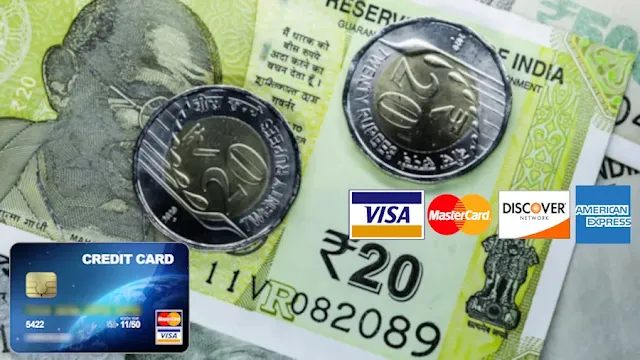Paying custom duty at Indian International airports can be a straightforward process if you understand the accepted forms of payment and the procedures involved. Whether you're bringing in goods that exceed the duty-free allowance or carrying items that require duty payment, this guide will help you navigate the customs payment process smoothly.
All customs duty payments for baggage items must be made at the State Bank of India counter in the Arrival Hall.
There are numerous occasions when passenger baggage gets lost or mishandled by airlines. In such cases, passengers must obtain a certificate from the airline and have it countersigned by Customs, specifying the unutilized portion of the free allowance. This allows passengers to use the unused duty-free allowance when their baggage is delivered.
A passenger may also request Customs to detain their baggage for re-export upon departure from India or for later clearance on payment of duty. The detained baggage will be examined, fully inventoried, and kept in Customs' custody. A Detention Receipt will be issued for the baggage.
Accepted Forms of Payment at India Airports
If you need to pay customs duty, you will be directed to the customs duty payment counter. There, you can pay using accepted methods such as cash or credit/debit cards. After making the payment, be sure to obtain a receipt for the transaction.1. Cash
You can pay the custom duty in cash using Indian Rupees (INR). Cash payments are often the quickest method, but ensure you have enough local currency on hand to cover the duty amount.
2. Foreign Currency
Payment Counter accepts several foreign currencies, including:
- United States Dollar (USD)
- Euro (EUR)
- Mexican Peso (MXN)
- Pound Sterling (GBP)
- Australian Dollar (AUD)
- Japanese Yen (JPY)
- Canadian Dollar (CAD)
- Swiss Franc (CHF)
- United Arab Emirates Dirham (AED)
- Saudi Riyal (SAR)
- Singapore Dollar (SGD)
Make sure to check the current exchange rates and convert your money beforehand if necessary, as the exchange rate at the airport may not be favorable.
3. Credit Card / Debit Card
Credit cards and Debit Cards are widely accepted for paying custom duties. Most major credit cards, such as Visa, MasterCard, and American Express, are accepted. Be aware that there might be additional charges for using a credit card, depending on your card issuer’s policies and any foreign transaction fees.
4. Indian Rupees (INR)
Payments can be made in Indian Rupees, the local currency. If you’re arriving from abroad, you can convert your money to INR at currency exchange counters within the airport.
5. Check
While less common, It’s advisable to confirm beforehand if this payment method is available.
What If You Don’t Have Money in Hand at the Airport?
If you find yourself without sufficient funds to pay the custom duty upon arrival, don’t panic. Here are a few steps you can take:
1. Currency Exchange Counters
Most international airports in India have currency exchange counters where you can convert foreign currency to INR.
2. ATMs
There are ATMs available at the airport where you can withdraw cash using your debit or credit card. Ensure your card is enabled for international transactions and check the withdrawal limit.
3. Credit Card Payment
As mentioned, using a credit card is a convenient option. If you don’t have cash, paying with a credit card is often the best alternative.
4. Seek Assistance
Approach the customs officials for assistance. They might offer solutions or direct you to facilities where you can access funds. In some cases, they may hold your goods temporarily until you can arrange payment.
How Long Do You Have to Pay Customs Duty?
Upon arrival, you are generally required to pay the custom duty immediately before you can proceed through customs and leave the airport. Customs officials will assess your goods and calculate the duty based on the applicable rates.
Temporary Holding
If you are unable to pay the custom duty immediately, customs may hold your goods temporarily. You will be given a certain period (usually a few days) to arrange for payment. Failing to pay within this period may result in penalties, additional fees, or confiscation of the goods.
Official Receipts
Always ensure you get an official receipt for the duty paid. This receipt will be necessary if you need to claim your goods back or if there are any disputes about the payment.
Paying custom duty at Indian airports is a straightforward process if you are prepared. Knowing the accepted forms of payment—cash, foreign currency, credit card, check, and Indian Rupees—can help you avoid any last-minute hassles. If you find yourself without sufficient funds at the airport, you can use ATMs, currency exchange counters, or credit cards to make the payment. Remember to handle the payment promptly to avoid penalties or confiscation of your goods. Safe travels!





No comments:
Post a Comment